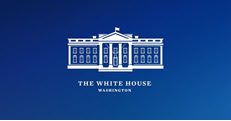
US consumers are learning firsthand and through anecdotal reports to be cautious about their online purchases. A fan of a European sports team bought an article of clothing from the team's online store and shared on social media today that they were dismayed to get a notice from the shipping carrier (UPS) invoicing him for tariffs - as well as charging him a $14 tariff-related fee. Prior to August 29, the item would have been free of tariffs thanks to de minimis.
We did the math on the partial UPS billing notice he shared. The tariff, labeled "Government Charges," was 45% of the cost of the item. The tariff plus UPS's "Brokerage Charges" added 55% of the cost of the item to his total expense. The item, shipped from Europe, was made in China.
Not coincidentally, NBC reporters have been trolling social media today looking for stories from shoppers about surprise costs and fees related to tariffs -
including in a DHL subreddit:
"We're a group of NBC News reporters covering the impact of tariffs and trade policies. Have you received any surprise bills or additional charges related to tariffs on packages? Have you received any notifications about packages being delayed or canceled?"
One person replied, "Preordered $50 of merch from Japan with $20 shipping ($70 total). When it finally shipped last month I got a notice from DHL stating I had to pay them $40 for import duties or my package would be returned to the sender. Paying $60 on shipping costs for $50 of product is sickening."
Another poster asked rhetorically, "How is it a surprise unless you have been living under a rock?"
In
another Reddit thread from 2 weeks ago titled, "With US tariffs at their highest in nearly 100 years, what's the weirdest way it's affected your shopping habits?" someone wrote, "I've actually had to start checking if things like car parts and workshop equipment are coming from overseas, lest I get slapped with ridiculous import fees. For the first time since online shopping was created."
"Reusing previous years Halloween deco and costumes, not getting anything new this year," someone else wrote.
Another wrote that they had been stocking up on a lot of products ("like face care, art supplies, etc") as much as they could. The fact consumers (and retailers and marketplaces) - have been stockpiling for some or much of 2025 could mean the full effect of tariff changes won't fully be felt until later in the year and into next.
At least one noted the spike in the cost of electricity as another factor in cutting back on spending.
One group that may benefit from reports of receiving bills for surprise tariffs is scammers. Someone wrote in a Reddit thread about tariff invoicing that they believed fraudsters will try to
scam people with false tariff bills.
 The AuctionBytes Blog has been giving a voice to online merchants since its launch in 2005. Named one of the world's top 30 blogs in 2008 by "Blogging Heroes." Weigh in with your thoughts on the joys and pitfalls of selling online.
The AuctionBytes Blog has been giving a voice to online merchants since its launch in 2005. Named one of the world's top 30 blogs in 2008 by "Blogging Heroes." Weigh in with your thoughts on the joys and pitfalls of selling online.


